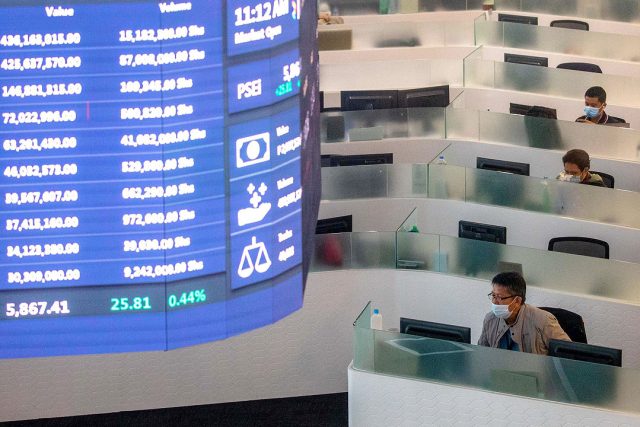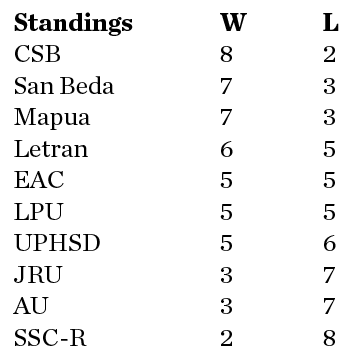There have been various changes in the value-added tax (VAT) refund process these past few years, with the Bureau of Internal Revenue (BIR) continuously simplifying the requirements and procedure on VAT refund applications. Among the issuances of the BIR to streamline the guidelines and address or clarify some of the concerns of the taxpayers are Revenue Memorandum Circular (RMC) No. 71-2023, Revenue Memorandum Order (RMO) No. 23-2023, and Revenue Regulations (RR) No. 5-2024.
Notwithstanding, there are still taxpayers encountering challenges, to the point of frustration for some, in filing a claim for a VAT refund due to the strict requirements. This is due to the fact the tax refunds are in the nature of tax exemptions and, hence, are construed strictissimi juris against the taxpayer. Accordingly, the rules and procedures for claiming a tax refund should be faithfully complied with by the taxpayer.
One of the questions being asked by the taxpayers is whether the output VAT should be deducted first from the amount being claimed for a refund.
Section 110(B) of the 1997 Tax Code, as amended, provides that any input tax attributable to zero-rated sales by a VAT-registered taxpayer may, at his option, be refunded or credited against other internal revenue taxes, subject to the provisions of Section 112. Hence, aside from complying with the substantiation requirements, the taxpayer claiming a VAT refund must be able to prove the input VAT is attributable to zero-rated sales. Deducting the output tax from such input VAT is not a prerequisite before the same can be allowed for refund.
In Court of Tax Appeals (CTA) Case No. 8402, the petitioner requested a tax credit/refund of the excess and unutilized input VAT for the fourth quarter of 2009 amounting to P34.1 million. The CTA, however, granted only P15.9 million, which is computed as follows:

In computing the above amount allowed for a claim for refund, the CTA deducted the output VAT from the validated input VAT since the petitioner failed to substantiate its excess prior-year input VAT. According to the CTA, the petitioner’s mere declaration in its fourth quarter VAT return of the amount of input VAT carried over without further supporting invoices and/or official receipts to substantiate the claim is insufficient.
The Supreme Court (SC), however, reversed the decision of the CTA. In G.R. No. 226682-83, the SC ruled that under Section 4.110-4 of RR No. 16-2005, as amended, the refundable input VAT is computed by getting the percentage of valid zero-rated sales over total reported sales (VATable, zero-rated and exempt) multiplied by the properly substantiated input taxes not directly attributable to any of the transactions.
The SC explained that the Court En Banc, in Chevron Holdings, Inc. vs. Commissioner of Internal Revenue, clarified that a VAT-registered taxpayer engaged in zero-rated transactions with excess and unutilized input VAT attributable to zero-rated sales has two options. The first option is to charge the input tax against output tax from regulation 12% VATable sales and any unutilized or excess input tax may be claimed from a refund or the issuance of a tax credit certificate. The second option is to claim a refund or tax credit for the input VAT from zero-rated sales in its entirety. These remedies are alternative and cumulative. Accordingly, it was erroneous for the CTA to deduct the output tax from the validated input tax first and use the resultant amount in computing the input tax available for refund.
The SC further stressed that the taxpayer only needs to prove non-charging or non-application of input VAT subject of the claim. There is nothing in the law and rules that mandate the taxpayer to deduct the input tax attributable to zero-rated sales from the output tax on sales subject to 12% VAT first, and only the excess may be refunded or issued a tax credit certificate.
The Court further pointed out that before an input tax from zero-rate sales may even form part of the total allowable or creditable input taxes to be charged against our taxes, it may already be removed from the formula once the taxpayer opts to claim the entire amount for refund. Moreover, Congress referred to “any input tax” in the provision of Section 110(B) of the Tax Code, which could mean one, some, or all input tax from zero-rated sales. Had the legislature intended the charging of input tax attributable to zero-rated sales against output tax as a preliminary step to the refund, it would have used the phrase “excess input tax” in the provision.
Accordingly, claiming a VAT refund related to zero-rated sales, that the following are requisites, among others:
1. Both the sales and purchases are properly substantiated in accordance with Section 113 of the Tax Code.
2. The input VAT subject to refund is attributable to zero-rated sales.
3. Such input VAT was not applied or charged against the output tax during and in the succeeding quarters.
Considering that the burden of proving entitlement to a VAT refund lies with the claimant, it is incumbent upon the taxpayer-claimant to ensure that the foregoing requisites have been complied with.
There have been improvements in the VAT refund process since I started my career, and with the continuous efforts to streamline the process and address the taxpayers’ concerns, our country is heading towards a more efficient and transparent VAT refund system that will benefit not only taxpayers but the government as well.
Let’s Talk Tax is a weekly newspaper column of P&A Grant Thornton that aims to keep the public informed of various developments in taxation. This article is not intended to be a substitute for competent professional advice.
Edward L. Roguel is a partner of the Tax Advisory & Compliance division of P&A Grant Thornton, the Philippine member firm of Grant Thornton International Ltd.
pagrantthornton@ph.gt.com















